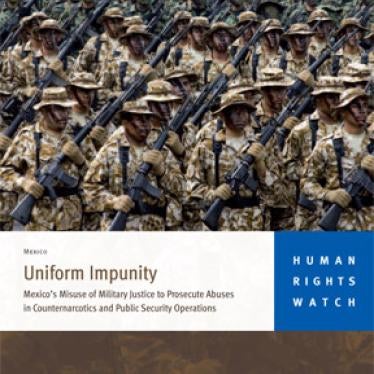The harrowing torture recounted by William Finnegan lays bare a practice that is all too common in Mexico’s war on drugs (“In the Name of the Law,” October 18th). Human Rights Watch has documented more than a hundred credible allegations of torture in Tijuana since 2009. The tactics were nearly identical to those Finnegan describes: electric shocks, waterboarding, and asphyxiation. Of the police chief implicated in several of these cases, Finnegan writes, “The truth is that his six-gun approach to fighting organized crime and police corruption has made space for real security improvements.” But the data tell a different story. While homicides in Tijuana declined from 2008 to 2009, they are once again on the rise, and on pace to match the city’s most violent year on record. Despite the assertion that “it is essential that the police start kicking ass in Mexico,” there is no evidence that the police’s brutal tactics have actually weakened the drug cartels. As Finnegan himself points out, although the police did capture a violent capo—thanks to a tip from U.S. intelligence—the Tijuana cartel is still trafficking drugs and other illicit goods with impunity. Comprehensive investigations—not a “six-gun approach”—are Mexico’s only hope of bringing down these sophisticated networks of organized crime.
Nik Steinberg
Researcher, Americas Division
Human Rights Watch
New York City







